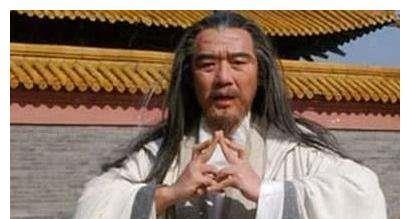Regarding ancient feng shui, later generations can't help but be surprised when they see the successful prophecies in history. How could the ancients predict the future? Whether it is a film or television drama, or like a historical material, we can feel the importance that the ancients attached to feng shui, especially the ancient emperors.

What we know the most is that Tang Taizong asked Yuan Tiangang about the Tang Dynasty, and according to relevant records, Yuan Tiangang really said the direction of the Tang Dynasty after that. Today, let's get to know an emperor who is closer to us, Qianlong.
Qianlong was the fourth emperor of the Qing Dynasty, and because of Yongzheng's secret establishment of the throne, Qianlong's succession to the throne had almost no waves. After Qianlong succeeded to the throne, the Qing Dynasty ushered in the peak of the prosperous era of Kangqian, and Qianlong further completed the unification of many nationalities on the basis of Kangxi and Yongzheng, and the social economy achieved greater development. At the same time, Qianlong became a famous emperor in history.
In addition to Qianlong's political achievements, Qianlong himself was often talked about by later generations. Among them, the six lower Jiangnan made future generations have a controversy over Qianlong, and judging from the original meaning of Qianlong's lower Jiangnan, Qianlong should be to check the lives of the people and check whether the people of the world live and work in peace and contentment. However, judging from the cost of Qianlong's six trips to Jiangnan, the purpose of Qianlong's lower Jiangnan is not only to inspect the lives of the people, but also to show off. For a time, later generations pointed out that qianlong's six moves to jiangnan dragged down the treasury of the Qing Dynasty. Is this really the case? We don't know.
But during the period of the lower Jiangnan, an interesting thing happened in Qianlong that is true. It is said that Qianlong was on his way down to Jiangnan on a routine street, and during the visit, Qianlong met a fortune teller. As we said above, the ancients liked feng shui, especially the emperors. No, the fortune teller caught Qianlong's attention. Because it was a private visit, Qianlong naturally wanted to test this person with his own hidden identity, who knows, Qianlong just walked over, the fortune teller had already guessed Qianlong's identity.
Before Qianlong could say what he wanted to ask, the fortune teller said I knew what you were going to say. This made Qianlong increase his interest, and although he had doubts about it, he still listened to what the fortune teller said. The fortune teller told Qianlong that you could live to be eighty years old, but you would abdicate at the age of eighty, so that you could live for three more years.
Obviously, the fortune teller really guessed Qianlong's identity, and Qianlong also turned from doubt to worry at this time. When he left the fortune teller's stall, he turned to the guards and ordered the man to be killed. However, when the guards arrived, the fortune teller left the stall as if he had already anticipated it. And left a note on the table that read that I had only calculated your fate for you.
A note, Qianlong understood in his heart. This fortune teller did indeed calculate Qianlong's fate, and defused the disaster for Qianlong.
In 1795, the sixtieth year of Qianlong, the 80-year-old Qianlong chuan was located in Aixin Jueluo, that is, the Jiaqing Emperor. Qianlong, who succeeded to Jiaqing, served as Emperor Taishang for three years and died in 1799.
It seems that the fortune teller is really accurate, and as to why he can predict success, it is not known.